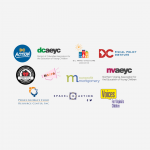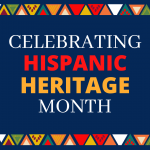ABOUT THIS IMPLEMENTATION PLAN
This plan was prepared by FSG through the generous support of the Washington Area Women’s Foundation and its Early Care and Education Funders Collaborative.
FSG
FSG is a mission-driven consulting firm supporting leaders in creating large-scale, lasting social change. Through strategy, evaluation, and research we help many types of actors — individually and collectively — make progress against the world’s toughest problems. Our teams work across all sectors by partnering with leading foundations, businesses, nonprofits, and governments in every region of the globe.
We seek to reimagine social change by identifying ways to maximize the impact of existing resources, amplifying the work of others to help advance knowledge and practice, and inspiring change agents around the world to achieve greater impact.
Washington Area Women’s Foundation
Washington Area Women’s Foundation is the only public foundation dedicated to increasing resources and opportunities for women and girls in the Washington, D.C. metropolitan area. We mobilize our community to ensure that economically vulnerable women and girls in the Washington region have the resources they need to thrive.
Washington Area Women’s Foundation established the Early Care and Education Funders Collaborative in 2008, as a multi-year, multi-million dollar collective funding effort. The Collaborative is supported and directed by corporate funders and local and national foundations.
EXECUTIVE SUMMARY
In April of 2015, the National Academy of Medicine and the National Research Council released a report, Transforming the Workforce for Children Birth Through Age 8: A Unifying Foundation, that is both ambitious and visionary in its recommendations for how to transform the workforce and systems that serve children from birth through age 8, or third grade.
To catalyze implementation of the report’s recommendations, the National Academy led a national “Implementation Network” of states across the country working to implement recommendations from the report. Our Washington Region Early Care & Education Workforce Network formed as one of the initial state networks, representing different sectors in early care and education (“ECE”) as well as the geographies of Maryland (Prince George’s and Montgomery Counties), Virginia (Alexandria, Arlington, Fairfax Counties), and Washington, D.C. Our region decided to form a team based on the unique needs in our region, including better serving our multi-cultural immigrant population with high numbers of dual language learners; embracing that the ECE workforce in our region is highly transient across state lines and thus could benefit from transferable credentials and compensation levels; and counteracting the lack of connectedness to a valued profession and to peers in ECE.
Our project purpose: “Mapping competency-based career pathways that are linked to quality and compensation and can be used across the region” will result in two concrete, connected deliverables:
Deliverable 1:
Career pathways document
· Document based on existing ECE professional credential/knowledge/competency frameworks in our region that establishes a practical and common set of quality standards for competencies at different levels, including suggested compensation levels, that are linked to identified competencies.
Deliverable 2:
Blueprint for an implementation mechanism
· Certification/credential process that assesses and verifies competencies among the region’s ECE professionals according to the competency levels defined in the career pathways document and that establishes suggested compensation levels that correspond to the certification/credential.
Initial feedback on this project has been gathered from dozens of ECE stakeholders in the region and overall this idea has been met with a positive response. Developing the final deliverables, ideally over the course of 12 months, will require a highly collaborative process of further engaging stakeholders in the region. Moreover, research will be conducted to better understand how to create a career pathways document that is clear and user-friendly; what the competencies should be at each level of the pathway; how the competencies can be assessed and verified by a third party; and what the cost and benefit will be of achieving compensation commensurate with demonstrated competencies.In order for these deliverables to be used in practice, the region will need to create supporting infrastructure, for example shared services and practices related to substitutes, mentors, and/or benefits administration. This project will explore the feasibility of this kind of supporting infrastructure.
For the thousands of dedicated ECE professionals in our region, we hope this project will result in greater awareness of where they are on the career pathway; greater ability to engage in continuous improvement of their competencies; increased compensation and compensation alignment among early education and learning settings; and greater connectedness to a valued profession and to peers. This is in service of the ultimate outcome of this work: children in the region benefit from high quality early childhood experiences that foster positive learning and development.
DOWNLOAD AND READ THE FULL IMPLEMENTATION PLAN HERE.







